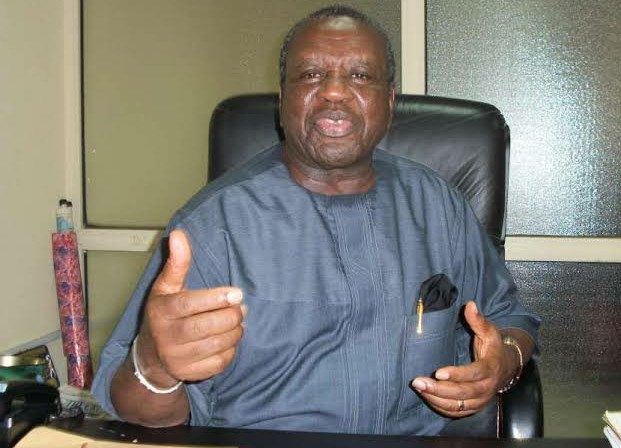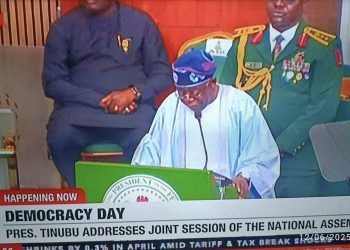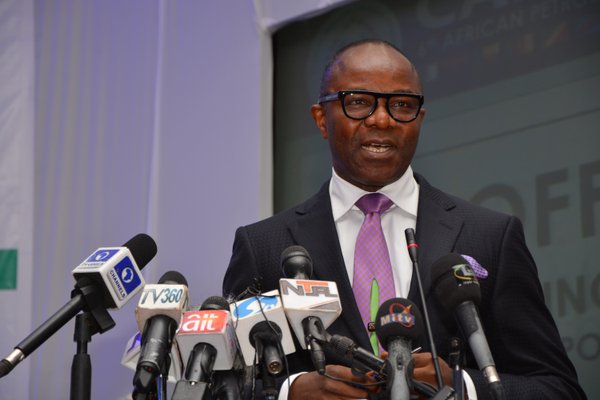Obong Victor Attah, the former governor of Akwa Ibom State means so many things to so many people.
To some, he is the poster boy of resource control; an intellectual, socio-political and economic struggle of the Niger Delta people for greater involvement in the management of their God-given natural resources.
To others, Mr. Attah is a master builder and the father of modern Akwa Ibom. Many see him as a stubborn and dogged fighter and one who doesn’t forgive easily.
Whatever people say or think; Mr. Attah is a man nobody can take for granted any day, any time.
Those who have tasted the tart of his rage would tell you it’s anything but sweet.
He was born on November 20, 1938 to Bassey Udo Adiaha Attah, one of the progenitors of a united Ibibio nation which late Justice Udo-Udoma said consisted of the indigenous inhabitants of the six administrative districts of Abak, Eket, Ikot Ekpene, Ikot Abasi, Opobo, Itu, and Uyo in the old Calabar Province under the British Colonial administration, who had acknowledged themselves to be kith and kin and of a common ancestry.
Even before the founders of the union answered the call of nature, the chord that held the six administrative districts together had been severed by the centripetal and centrifugal forces of manipulative and divisive politics promoted by third columnists and self-seeking elite.
Those who knew Mr. Attah from the cradle say he does not fight dirty but would not hesitate to deal with treacherous and cunning persons around him.
One of his childhood buddies, late Ime Akpan, once said of him, “Da Victor showed signs of rebellion right from when we were young boys.
“It was difficult to make him change his mind once he has set himself on a course of action.
“I wouldn’t say he was proud. I would say a stable character was shaping up at the time.”
An indigene of Okop Ndua Erong, Asutan Ekpe in Ibesikpo Asutan Local Government Area, Obong Attah attended the Native Authority School in Calabar before proceeding to St. Patrick’s College, also in Calabar where he finished his secondary education in 1956.
The activism in him showed up very early when he dared his father and abandoned the family church because of a certain financial commitment.
The young Victor, then an elementary school pupil, had left his parents’ church, Qua Iboe, when the church refused to baptize him.
The church had told him he was too young to meet the financial obligations of a baptized member.
Disappointed, he went home, wept uncontrollably, then looked his parents in the eye and said, “If your church baptizes people simply because they could afford the church dues, I am not accompanying you to that church again.” He was later to join the nearby Catholic Church in Calabar.
Despite entreaties from parents and siblings, he never went back to the family church but remained a staunch Catholic.
The former governor is not known to pander to populist ideals or flip-flop after taking important decisions – a trait that has shaped his life and relationships over time.
As an undergraduate student at the then Nigeria College of Arts, Science and Technology, Zaria, Kaduna State, now Ahmadu Bello University, ABU, Attah staged the first protest in the institution.
Frustrated by the British faculty’s treatment of Nigerian students, he mobilised the student union to protest the suspicious flunking of Nigerian architectural students by the expat teachers.
Following the protest, the smart young activist was sent abroad to complete his studies.
In the United Kingdom, he earned a diploma from the Royal Institute of British Architects (RIBA), and in 1965 got a Postgraduate Diploma in Building Science at Liverpool University.
He went on to receive a Master of Science degree in Advanced Architectural Design and Planning from Columbia University in New York the following year.
He also attended the Kennedy Graduate School of Governance at Harvard University, United States.
Not long after Mr. Attah withdrew from the pioneer tertiary institution in Northern Nigeria, an inquiry was ordered into his protest and the report proved him right – the British lecturers were reluctant to graduate many Nigerian students.
The reason was Britain had just returned from a war, so if many African professionals qualified too early, there would be no jobs for their war returnees, who were sent abroad.
Back to Nigeria, Mr. Attah plunged himself into the task of building an excellent career and changing the architectural landscape of the country.
Not given to playing on the relegation side, he joined some of the best architects in the country and together, a vibrant professional body was established.
While the story has it the idea of starting the Nigeria Institute of Architects (NIA) was mooted by three architects who were studying in Britain in the late 50s, the same time Mr. Attah was in that country, the names of those trailblazers have not been mentioned.
But it will not be far from the truth to say, the premier Akwa Ibom architect played a prominent role in the growth of the institute and the international recognitions is has attracted over the years.
In fact, Mr. Attah has an uncanny bent for building not only houses and cities but also people and institutions.
READ ALSO: Gowon, Abdulsalami, Atiku others honour GEJ book launch, as Buhari stays away
From the United States to the Caribbean and back home in Nigeria, Mr. Attah has left indelible benchmarks and will be remembered long after his times. His colleagues will not forget his tenure as the national president of NIA in a hurry.
Unfortunately, the body does not record the contributions of its past leaders on its official website https://nia. ng/.
One would have expected to see how the body evolved and those who made invaluable contributions toward its formation, nurture and sustenance over the years.
Nigeria is a country that has no respect for history and that’s why the labour of “our heroes past is almost being in vain.”
But Mr. Attah has grafted his name on the hearts of his people and has touched the lives of so many that he is considered as an embodiment of service, doggedness and forthrightness.
Although many have made claims to being responsible for the creation of Akwa Ibom, Nigeria’s 21st state by President Ibrahim Babangida on September 23, 1987, Mr. Attah does not join issues with any of such persons.
But those who know; know the relationship he had and still has with the former military ruler and the role he played in giving life to the agitation for a separate enclave pioneered by the Ibibio State Union and comrades like Chief E.O. Eyo.
He has never ceased thanking God and IBB for the epic call that delivered a brand new state for his people.
With the creation of Akwa Ibom, Mr. Attah was ready to play a leading role in its design, construction and maintenance.
So, when IBB blew the whistle for political activities to commence towards a military transition to civilian rule, he immediately immersed himself in the turf until the master dribbler dribbled the entire political structure of the time into extinction.
When Late Sani Abacha took over and later expired under very mysterious circumstances and Abdulsalami Abubakar came to the saddle, Mr. Attah again joined other prominent politicians in building the initial structures that led to the formation of the Peoples Democratic Party (PDP), a party on whose platform he contested and won election as the 8th governor of the state aptly named “The Land of Promise.”
In his inaugural address at the Uyo Township Stadium on May 29, 1999, Mr. Attah invited the people of the state from all walks of life to join him in building a state that would become the cynosure of all eyes.
The speech, titled, “Come Let Us Build Together,” has gone down in history as a masterpiece and a clarion call for Akwa Ibom people at home and in the Diaspora to join in building a state of their dream.
As an architect, Governor Attah did not just set out to develop Akwa Ibom arbitrarily but first created a master plan and set up structures before deploying available resources towards building an enviable state.
Before becoming governor, he was a member of the 1994 Constitutional Conference where the 13 per cent Derivation Principle was proposed and later included in the 1999 Constitution.
Mr. Attah was a major force in the lobbying machinery that ensured the constitutional conference not only approved the derivation revenue for oil producing areas of the country but that the recommendation made its way into the constitution.
However, the fighting spirit of the world-class architect was unleashed on the Federal Government when President Olusegun Obasanjo refused to implement the derivation law and rather implemented an infamous on-shore off-shore oil dichotomy principle which denied Akwa Ibom any meaningful share from the crude oil mined from the area.
Governor Attah led other leaders of the region to challenge Mr. Obasanjo’s action but lost at the Supreme Court.
With the ruling, Akwa Ibom suddenly lost its position as an oil producing state because its deposits are located largely off-shore.
With zero funds from the derivation, it became increasingly difficult for the state to fulfil its statutory obligations.
As a master draftsman, Mr. Attah adopted many strategies to keep the battle alive.
He fought directly and indirectly until President Obasanjo budged and agreed to a political settlement which culminated in sending a bill to the National Assembly to abolish the “satanic” policy. Presto! Akwa Ibom once again became the largest oil producing state in Nigeria as well as the state with the largest oil reserves.
A former Minister of Lands, Housing and Urban Development, Nduese Essien said Mr. Attah can best be recognized as the founder of modern Akwa Ibom.
“He came with the intention to serve and served to the best of his ability. We recall vividly his courageous exploits with dexterity and his oratory for the rights of Akwa Ibom and South-south peoples,” Mr. Essien said.
“From the Constituent Assembly to the resource control struggle and the abrogation of the on-shore off-shore dichotomy and the National Conference of 2014, Obong Attah was firm in speaking truth to power.
“On his 80th birthday, the government and people of Akwa Ibom State must bestow on him a befitting honour worthy of a leader, who has enjoyed more respect and good health outside public office,” the former minister said.
Also speaking, a foremost architect, Nya Etok, extolled the former governor for his sterling leadership and selfless services to humanity.
“I can say very confidently,” he began, “he is one of the most visionary leaders we have had who understood the dynamism of development and the virtues of a true leader.”
Mr. Etok said one of the most important examples of his great character was at the inauguration of the Shelter Afrique Estate when he refused to open the plaque which named the estate after him.
“I was there. He opened the plaque and closed it almost immediately and insisted the estate belonged to Akwa Ibom State and should not be named after him.
“That is leadership beyond self and should be emulated by those who aspire to lead the people,” he said.
With the title of Eduek Ekpe, the highest traditional title in his home Asutan land, Obong Attah is one of the most respectable leaders Akwa Ibom will ever produce and history will be kind to him for the contribution he has made towards the development of the area.
On his 80th birthday anniversary, he deserves so much from the state he so laboured to build and a nation he has loved and served so much.
We, hereby, join all his friends and admirers to wish Obong Attah the best of life and living.











